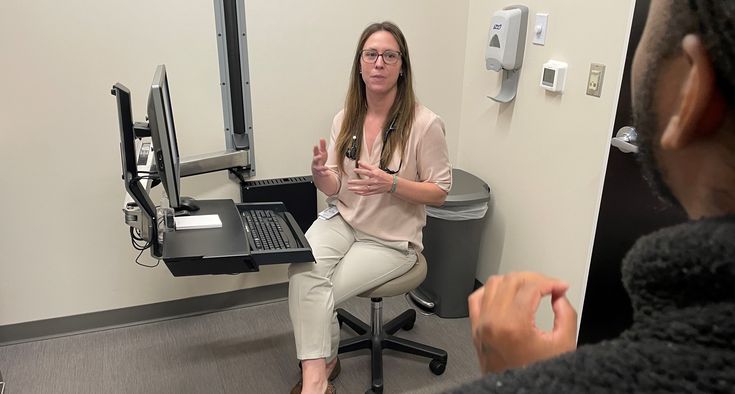Take a moment to think about all the medications and procedures clinicians prescribe daily. Each provides healing, comfort, and a path to improving the lives of the people at the heart of healthcare. These treatments are also the culmination of years of medical training, experience, and expertise that every patient deserves to access without worry of regulatory or other delays. However, barriers to patient care exist, such as prior authorizations, exacerbating delays and frustrations, contributing to growing clinician burnout and patient concerns.
Prior authorization refers to the common practice where insurers must approve a clinician’s treatment plan, medication, or procedure before a patient can access it. It’s a process that creates barriers and all too often, delays or denies access to critical medical care.
A 2024 poll from the PAN Foundation found that 67% of responding patients say health insurance prior authorization requirements delayed their access to prescribed medication or medical treatment, with 47% reporting the delays being up to two weeks. This same poll reports that 35% of respondents say that prior authorization requirements caused them increased anxiety and stress, even leading up to unplanned hospitalizations for some.

Q: Have you encountered situations where prior authorizations were denied for treatments that were necessary?
Yes, unfortunately, prior authorizations are often initially denied. To get what my patients need, that means I spend an exceptional amount of time talking to providers, sometimes from unrelated specialties, at the insurance company who will never see the patient, explaining why my patient needs a certain treatment.
Each minute I spend on the phone with an insurance company is a minute I can’t be with my patients – and it feels like insurers are counting on that so maybe I won’t call, and they won’t have to cover what my patient needs. I do not order testing or medication that I don’t think my patients need, so this is really frustrating. Recently, I had a patient in for her yearly physical, and I felt a 5cm mass in her lower abdomen, and she needed a CT scan so we could see what we needed to do next. The insurance company denied the CT. I had to do two calls with the insurer to get this authorized. For something as basic as an imaging test, the delay this created is simply not good patient care.
Q: How do you manage the administrative workload associated with prior authorization requirements?
At any time, we have more than 200 prior authorizations waiting to be done. As frustrating as that is for us, it is even more frustrating for our patients, who are waiting for the treatment I know they need. We chip away at the prior authorizations as best we can, but on top of how painful it is to have to watch our patients wait, it takes a personal toll, too. It often means we don’t have time for lunch or any other breaks during the day. We have nurses sacrificing precious time away from providing clinical care – which negates why they began nursing careers – to call insurers and push to get them to do the right thing. At some point, the emotional impact of this is not sustainable.
Q: From your perspective, how do prior authorizations impact your patients’ perception of the quality of care they receive?
This is the area that bothers me most. Patients perceive that this waiting and denial is our fault – they question if we’re fighting for them and if the care we’ve recommended is actually the care they need.
They shouldn’t have to understand that eight out of every 10 times a prior authorization gets denied, we’re ultimately going to be able to get that denial overturned, and only then they’ll subsequently get the care they need. So, even when patients get the right care in the end, the process harms our relationship with them and that directly impacts our burnout levels. As highly trained professionals, we need to have the trust and respect of our patients, and the prior authorization process undermines this completely.
Q: Are there any reforms you would like to see to the current prior authorization process?
I think the whole process needs to be revamped. The basis of what we do should be in the best interest of the patient, and that requires acknowledging exactly how often initial denials are overturned, for example.
When a provider’s record shows nearly all the care they prescribe ultimately gets covered, why are we continuing to require they seek prior authorizations? That’s just wasteful. Patient care needs to be put back in the center of the process and policy solutions like gold carding, time limits on prior authorization reviews, and required peer-to-peer conversations – where we are actually talking to a peer from the same specialty as the condition we’re treating – would be a great start.
All these changes are practical, common-sense solutions that could drastically improve patient care and help clinicians like me stay in practice longer. I’m hopeful policymakers are watching the real impacts current policies have on the people they represent. This problem won’t get better without them.
To learn more about the ways the Novant Health Center for Public Policy Solutions is working to change prior authorization policies and other issues affecting patients and clinicians, email PublicPolicySolutions@NovantHealth.org or visit Novant Health.org/PolicySolutions to stay updated with our latest blog posts and learn about our latest efforts.







